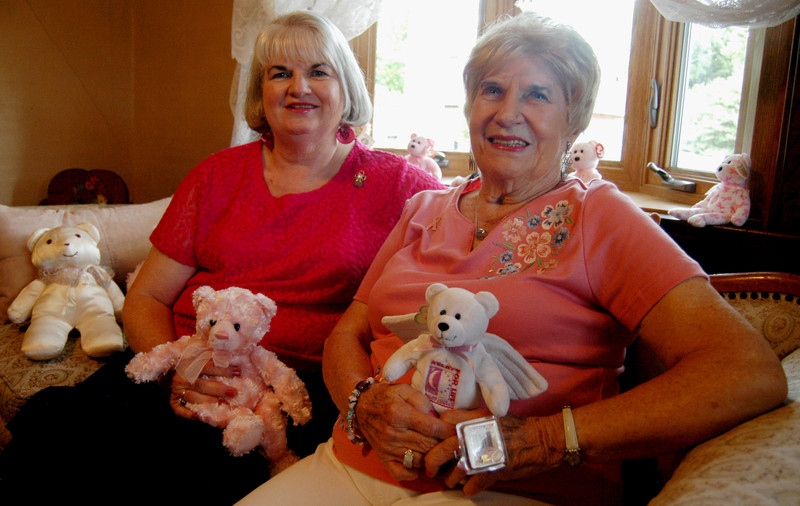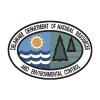Three generations of breast cancer survivors say hope, faith are key
When Milton resident Brenda Hughes was a young teen living with her parents and grandmother in southern Delaware, breast cancer awareness didn't come with pink ribbons plastered across town.
It was the late 1950s, and even muttering the word “cancer” was frowned upon. And it was the last thing Brenda and the ladies in her family thought would happen to them.
“It was an unspoken thing,” Brenda said. “Cancer was a bad word.”
But one day, Brenda's maternal grandmother, Edith Barker, dragged Brenda's mother, Lydia Wagamon, to a health fair at Beebe. Edith was worried about Lydia because she had been more bloated than usual. The doctor checked her out and returned a good report.
While they were there, the ladies figured Edith should get checked as well. Within a couple minutes, the tables completely turned: Dr. Jim Beebe was admitting Edith into the hospital for a radical mastectomy the next morning.
“I could not say cancer about my mother,” her now 92-year-old daughter said, her eyes starting to water as she recollected the story. “I had heard of it; just never thought it would happen to us.”
Recovery went as well as it possibly could for Edith. There were no complications, and she fully recovered from the removal of her breast.
During and following her recovery, she would answer questions when asked, but she didn't bring up the subject of breast cancer with the women in her life. She didn't have to.
Brenda and Lydia had learned a valuable lesson from the urgency in the doctor's voice, Edith's quick compliance with a very dangerous surgery, and her continuing strength as she returned home, despite her fear, pain and trauma.
“It saved my life, too,” Brenda said.
Following her grandmother's diagnosis and surgery, Brenda began to give herself self exams. No one taught her how, but she instinctively knew that she needed to be prepared if she ever received the same diagnosis.
Two decades later, after all those years of diligence, Brenda found a lump. She was 32 years old and had a child of her own. It was 1981, and while technology had significantly advanced for breast cancer diagnosis and treatment, there was still a long way to go.
“No matter what you think it might be, you're never really prepared for it,” Brenda said.
A radical mastectomy, while it was an option, was not the route for Brenda. Her surgeon performed a lumpectomy, which tested positive for breast cancer, and followed up with a segmental mastectomy and the removal of lymph nodes.
Brenda received six weeks of radiation therapy, making the daily trek from Milton to Wilmington for treatment. But her recovery has been far from easy, and it will never quite be over.
“It's an extremely emotional thing to go through,” Brenda said.
Because of the radiation therapy and other complications with the initial procedure, Brenda has had additional surgeries as well as more than 60 types of skin cancer. And now, with a beautiful handmade pink wreath on her front door, and a collection of pink candles and stuffed animals throughout her home, cancer has become part of her family's common vocabulary. And they're not afraid to talk about it.
“Sharing stories helps,” she said. “I will deal with skin cancer for the rest of my life.”
Nearly 20 years later, Lydia also got the diagnosis: She had breast cancer. It was by chance that her doctor found the cancer, and even watching her mother and daughter go through it, it was still a shock. Luckily, instead of relying on tests that never would have shown the cancer, Lydia's doctor went the extra step with biopsies, tests and re-tests.
“If he had not gone further, it would have become a mass,” she said. Lydia underwent a modified mastectomy, lymph-node removal and radiation therapy.
Lydia has also suffered skin cancers, and now trips to the doctor are just another part of their schedules.
“Every day you don't have a recurrence is a good day,” Brenda said. “I am so happy people are talking about it more. Education is key.”
For the mother-daughter survivor duo, hope and faith also played key roles in recovery.
“I prayed an awful lot through all of this,” Lydia said. “Those prayers have helped me.”
Brenda said she knew she had to survive from the moment of her diagnosis – for her mother, for her husband, Dennis, and for her young son DJ, who is now grown and has children of his own.
“You have to have hope,” she said. “Hope for the future. Faith in God will get you through it. Your outlook on recovery has everything to do with your recovery.”
As difficult as it is for Lydia and Brenda to remember the exact moments when they found out a mother, daughter, grandmother, had breast cancer, being able to share those stories is like a beacon of hope, not just for them, but for others facing similar challenges.
“They are promoting it so much more today than even 10 years ago,” Lydia said. “It means so much for people to talk about it to other people. It helps take the fear away.”
“It's not the dreaded c-word anymore,” Brenda said. “I'm a survivor. Mom's a survivor. Grandmom was a survivor.”






















































